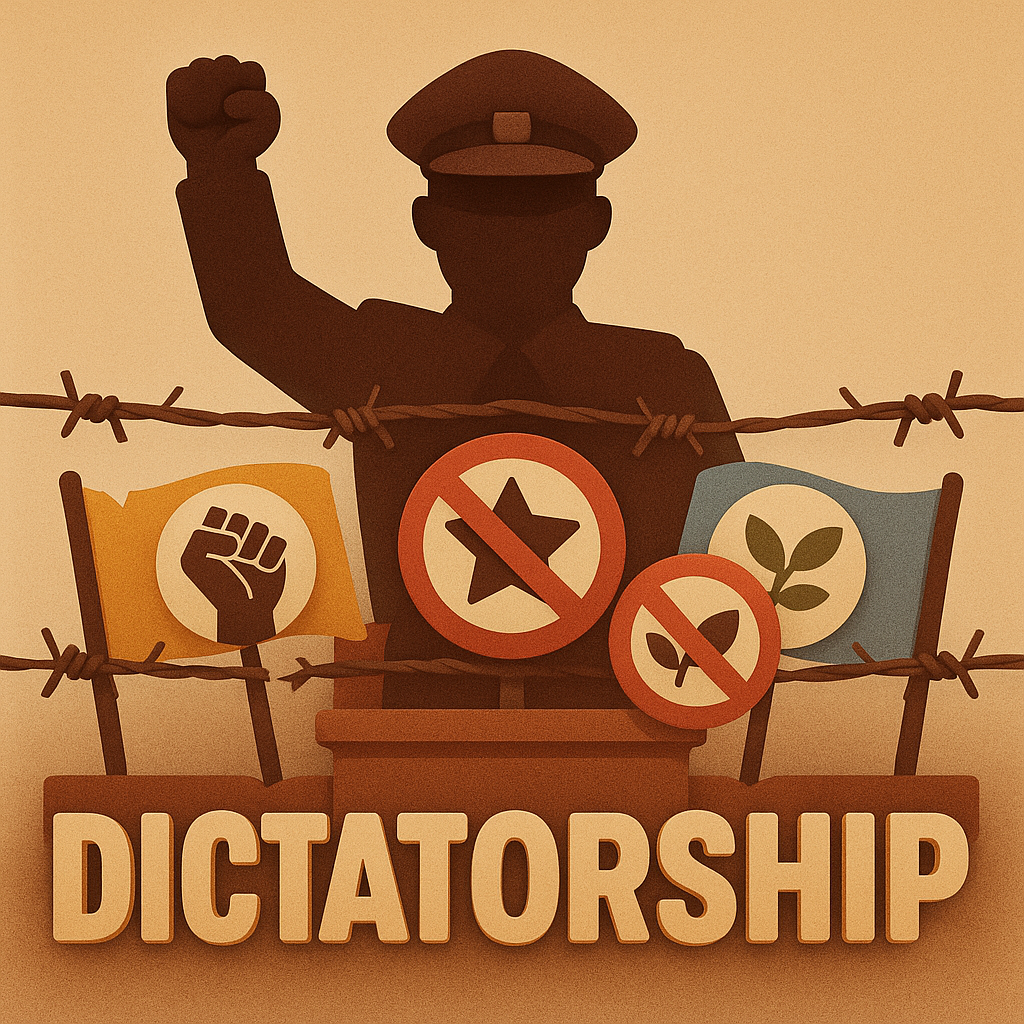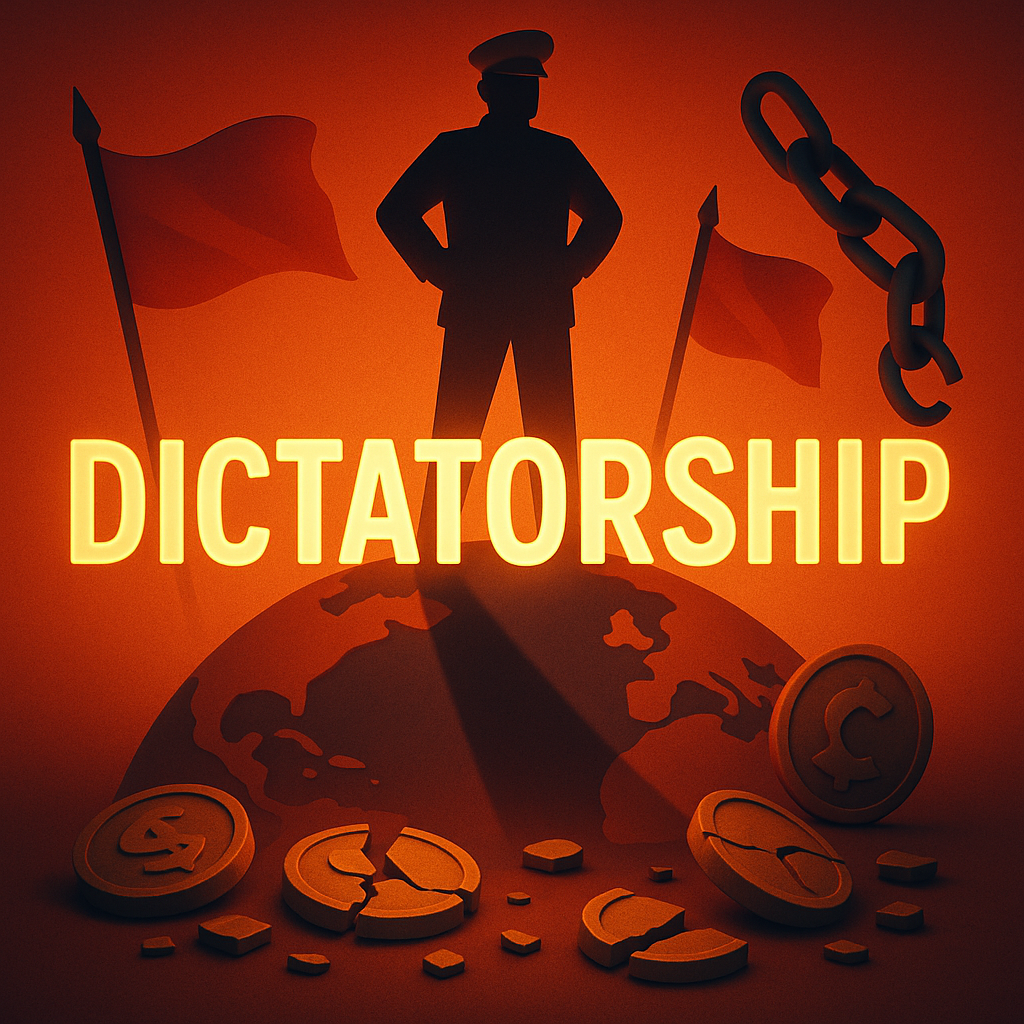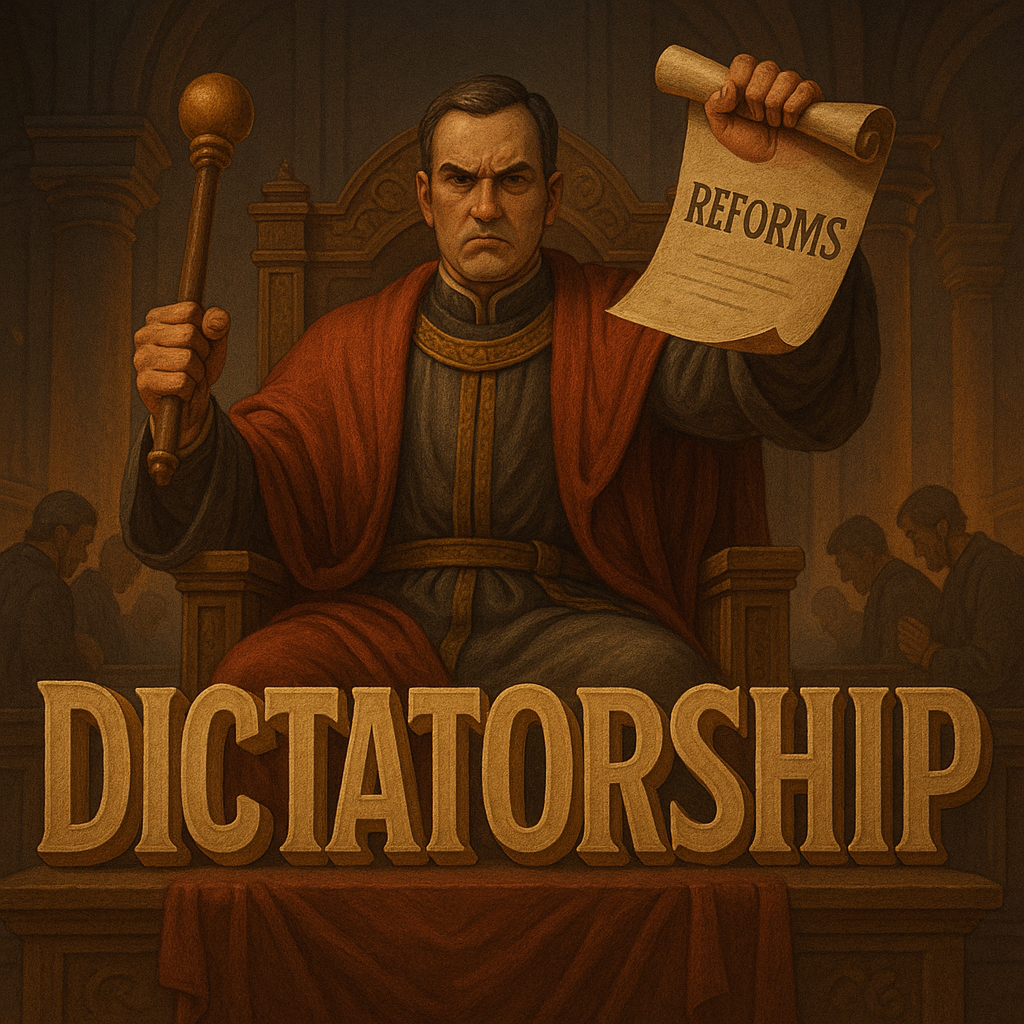Dictatorship
Definition
The noun "dictatorship" refers to (1) a form of government in which absolute authority is vested in a single ruler or a small clique; (2) the period during which a dictator rules; and (3) the office, authority, or tenure of a dictator.
Parts of Speech
- Noun
Pronunciation
American English
- IPA: /ˌdɪkˈteɪ.tər.ʃɪp/
- Respelling: dik-TAY-tər-ship
British English
- IPA: /ˌdɪkˈteɪ.tə.ʃɪp/
- Respelling: dik-TAY-tuh-ship
Etymology
From Latin dictator “one appointed to dictate,” from dictare “to say often, prescribe,” via French dictature. Entered English in the mid-17th century.
Derivatives
- Dictatorial (adjective)
- Dictatorially (adverb)
- Dictator (noun)
Synonyms
- Autocracy
- Despotism
- Tyranny
- Authoritarianism
Antonyms
- Democracy
- Republic
- Pluralism
- Freedom
Usage
"Dictatorship" appears in political science, history, and current affairs. Examples: "The country fell under military dictatorship," and "He lamented the rise of dictatorship worldwide."
Related Terms
- Autocrat: A ruler with absolute power.
- Despot: A tyrannical ruler.
- Oligarchy: Rule by a small group.
- Totalitarianism: Centralized control by the state over every aspect of life.
- Democratization: Transition to democracy.
Detailed Definitions
Noun
- A government by a dictator or small clique with absolute power: Power is concentrated in one authority without effective constitutional limitations.
- Example: "Under the military dictatorship, political parties were banned."
- The period during which a dictator rules: The tenure of dictatorial control.
- Example: "The nation suffered economic turmoil during the dictatorship of 1975–1980."
- The office or authority of a dictator: The role and powers invested in the dictator.
- Example: "He assumed the dictatorship of the council to enforce reforms."
dictatorship








